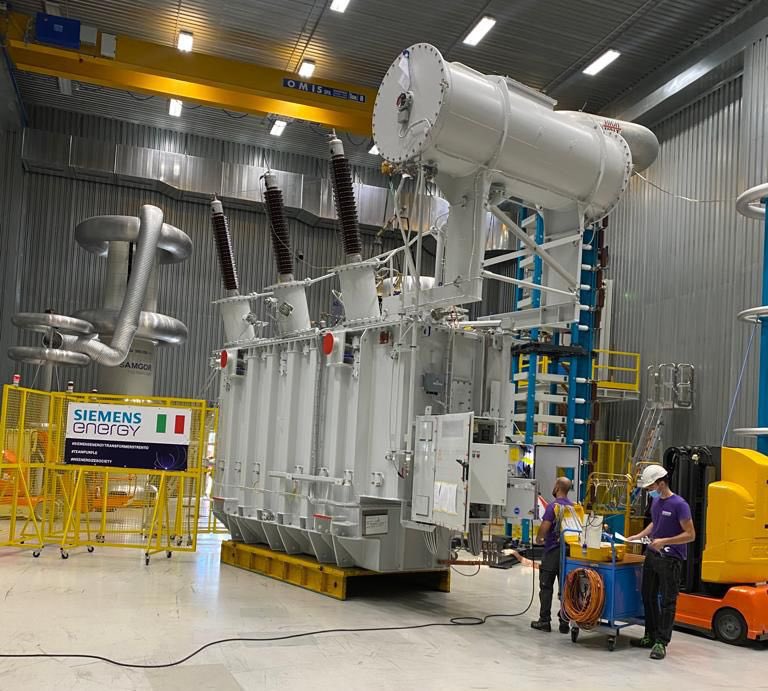As the $2.3 billion Siemens power project gains momentum, electricity transformers and substations intended for it have arrived in the nation, according to Minister of Power Adebayo Adelabu’s Sunday statement.
After numerous months of delays, the Federal Government extended the contract for the mega power project with Siemens and the German government a few months ago.
The COVID-19 pandemic and the passing of former President Muhammadu Buhari’s chief of staff, Abba Kyari, the minister said in a statement on Sunday, hindered the execution of a Memorandum of Understanding that Nigeria and Siemens had signed to modernise the nation’s power distribution and transmission.
Adelabu claimed that Kyari, who passed away due to COVID-19 difficulties, was the project’s driving force and that the project was deadlocked until President Bola Tinubu joined the team.
“For the presidential power initiatives, also known as the Siemens contracts, the Nigerian government and the German government signed a memorandum of understanding in 2018.” Nigeria will receive a $2.3 billion loan from Germany, and Siemens will be hired to modernise the country’s transmission and distribution infrastructure.
Nevertheless, a great deal of work needs to be done before these ideas may be implemented because of COVID-19. Regretfully, the project’s main supporter and former Chief of Staff to the President, Malam Abba Kyari, passed away. Following that, there was an election, and a new administration was installed. “At a briefing on Friday, Adelabu stated that there had been no noteworthy advancements regarding the agreements between 2018 and 2023,” according to a statement provided to The PUNCH on Sunday by Adelabu’s media assistant, Bolaji Tunji.
Adelabu claims that although the project was intended to be carried out in two stages, the Tinubu government’s rise to power was the catalyst for the pilot phase’s notable advancement.
One of the topics covered during the German Chancellor’s November 2023 visit to Nigeria was the necessity of carrying out the project. The President recently attended the African Business Summit held in Germany, and I had the honour of going with him. We discussed a project in great detail with our German counterparts during the summit, and we both felt that moving forward with an MOU would be advantageous to both nations. In order to restart the project, we decided to sign an acceleration agreement.
An affiliation agreement was signed in December 2023 at COP 28 in Dubai by the German government, Siemens Energy, FGN Power Company Limited, and the federal government. After that, we started the project analysis, and I’m happy to let you know that the project’s pilot phase is virtually over.
Ten power transformers and ten mobile substations were imported from offshore during the pilot phase in order to serve as a Proof of Concept for these projects. “All of these things have reached the nation,” the minister said.
Five of the ten transformers, he claims, have been put in various parts of the nation.
Additionally, we have installed three of the ten mobile substations—there are still seven to go. We will commission and energise them after we have completed their installation. Nigerians would then start to notice the effects of this effort,” he said.
Adelabu stated that in order to prevent the current fragility that causes persistent grid collapse, the project’s following phases will involve altering the transmission segment or network by increasing transmission capacity and fortifying the transmission.
According to him, this would entail building 22 new transmission substations in addition to renovating roughly 14 current electricity transmission substations.
About 14,000 kilometres of transmission segments will need to be installed, including new transmission power lines, existing power lines that need to be conducted, and some lines that need to be reconducted. The distribution segments will also see improvements to our current injection substations inside the distribution businesses.
“There will be around 6,000 33KV and 11KV transformer replacements and upgrades. To reach our goal of over 22,000 kilometres of lines, we will also reconduct and install new lines.
Therefore, I think that Nigerians will start to see changes in the strength of the national grid and the effectiveness and efficiency of the distribution businesses once we finish with this first phase of the presidential power initiatives, also known as the Siemens projects. We have everything under control, and President Bola Ahmed Tinubu is incredibly dedicated to seeing these projects through to completion,” he insisted.


